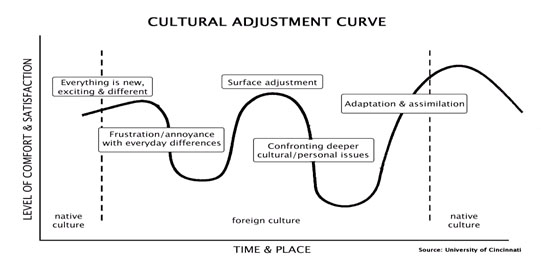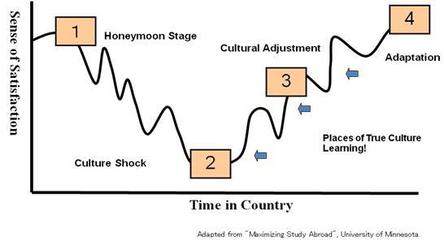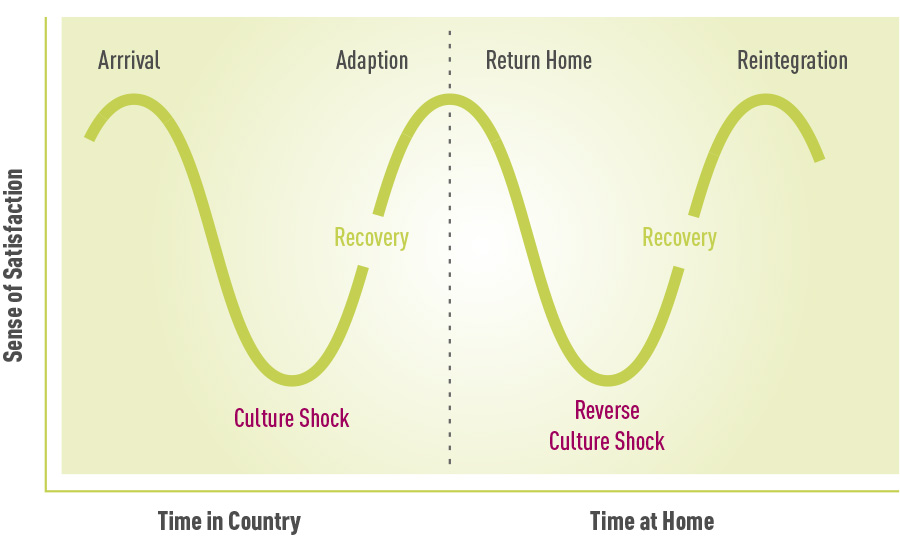Understanding Culture Shock
What is Culture Shock?
Culture shock is a term that describes the feelings of confusion, anxiety, and disorientation that often accompany the experience of living in a foreign culture. Whether you’re moving to a new country for work, education, or adventure, you might find yourself grappling with differences in social norms, language, food, and everyday practices that can be both exhilarating and overwhelming.
Imagine stepping off a plane and being greeted by a cacophony of unfamiliar sounds, signs in a language you don’t understand, and social interactions that seem foreign. It’s normal to feel a rush of excitement and fear. Here, culture shock hits home.
Table of Contents
Stages of Culture Shock
Culture shock typically unfolds in several stages, often leading you through a rollercoaster of emotions:
- Honeymoon Stage : Everything seems new and thrilling. You may feel excited about the change and eager to explore.
- Frustration Stage : As reality sets in, confusion and anxiety grow. You might feel isolated and frustrated by misunderstandings.
- Adjustment Stage : Here, you start to adapt and find ways to cope with your new environment. You learn to navigate cultural practices and gradually overcome initial challenges.
- Acceptance Stage : You begin to feel comfortable and confident in the new culture, appreciating its nuances and differences.
Understanding these stages can provide you with a roadmap to navigate your journey. Embrace both the highs and lows; it’s all part of the adventure of living in a new culture!

The Adaptation Stage
As you transition to the adjustment stage of your experience, you will likely notice some symptoms that signal you are starting the adaptation stage of culture shock. This critical phase can sometimes feel daunting, but with awareness and the right tools, you can navigate it with greater ease.
Recognizing Symptoms
You might find that your initial excitement has faded, replaced by feelings that can range from mild discomfort to outright frustration. Here are some common symptoms to be aware of:
- Mood swings : You may feel elated one moment and downcast the next.
- Isolation : A sense of loneliness could creep in as you adjust to new social dynamics.
- Physical symptoms : Headaches or fatigue may arise due to stress and adjustment.
- Cultural fatigue : You might feel overwhelmed by constant adaptation to new customs and practices.
Recognizing these symptoms is crucial in addressing how you feel and moving forward positively.
Coping Strategies
To effectively manage this adaptation stage, consider trying these coping strategies:
- Stay connected : Reach out to friends and family, whether back home or new acquaintances. Sharing your feelings can lighten the load.
- Establish routines : Creating a sense of stability in your day-to-day life can help you feel more at home.
- Engage in local culture : Immerse yourself in the community. Attend events, try local dishes, or participate in cultural activities to foster connection.
- Practice self-care : Engage in activities that bring you joy, whether it’s reading, exercising, or pursuing a hobby.
By recognizing symptoms and utilizing coping strategies, you can effectively navigate the adaptation stage, embracing the unique opportunities that come your way!

Building a Support System
As you continue to navigate the adaptation stage of culture shock, it’s essential to build a robust support system. This can make all the difference in how you experience your new environment, helping you feel more grounded and connected.
Seeking Help from Others
Don’t hesitate to reach out for help. Whether it’s cultural misunderstandings or simply feeling homesick, seeking support can be beneficial. Consider these approaches:
- Connect with expat groups : Many cities have groups designed for newcomers. They offer camaraderie as well as valuable insights into local customs.
- Talk to locals : Most people appreciate it when you show interest in their culture. They can provide guidance and even become friends along the way.
- Professional help : If feelings of anxiety or depression persist, don’t hesitate to seek out a counselor or therapist who specializes in expatriate issues.
It’s perfectly okay to ask for support; remember, everyone needs a helping hand sometimes!
Engaging with the Local Community
Engaging with the local community can significantly enhance your experience. This not only helps you feel more at home but also opens doors to meaningful relationships. Here’s how you can start:
- Volunteer : Offer your time to local charities or events. This can introduce you to new people and cultures while giving back to the community.
- Attend community events : Check out local festivals, markets, or gatherings. These are great opportunities to immerse yourself in the culture and meet locals.
- Join classes or workshops : Whether it’s cooking, dance, or language, classes provide a fun environment to meet like-minded individuals.
Building a support system through these methods will not only ease your adaptation but enrich your experience in your new home. Embrace the journey, and remember: connection is key!

Exploring New Opportunities
As you continue to build your support network and find your footing in a new culture, now is the perfect time to explore new opportunities that await you. Diving into various activities and learning the language can enrich your experience and foster your sense of belonging.
Trying New Activities
Engaging in new activities is an exhilarating way to step outside your comfort zone while discovering the local culture. Here are a few ideas to ignite your curiosity:
- Join a sports team or club : This is not only great for exercise but also a pathway to meeting locals who share your interests.
- Enroll in art or music classes : Whether it’s painting, pottery, or playing a musical instrument, these creative pursuits can anchor you in the community.
- Take cooking classes : Not only will you learn how to prepare delicious local dishes, but you’ll also share moments with fellow food enthusiasts.
I recall taking a local dance class during my first few months abroad. The rush of movement, shared laughter, and new friendships created memorable night outings!
Learning the Language
Language can be a powerful bridge to understanding and connection. Here’s how you can start learning:
- Practice daily : Even 15 minutes a day can show progress. Use language learning apps like Duolingo or Babbel.
- Conversational meetups : Join groups focused on conversation exchange, where you can practice with native speakers.
- Label your environment : Stick labels on common household items to familiarize yourself with vocabulary.
By involving yourself in new activities and immersively exploring the language, you can uncover hidden joys in everyday life and deepen your connection to your new home. Every opportunity is a step toward embracing the unique adventure ahead!

Embracing Cultural Differences
As you delve deeper into your new life, embracing cultural differences becomes one of the most rewarding aspects of your journey. By fostering respect and tolerance, as well as appreciating the diversity around you, you create a richer, more rewarding experience.
Respect and Tolerance
Learning to respect and tolerate cultural differences lays the foundation for meaningful interactions. It’s essential to approach these differences with an open mind. Here are some strategies to help you cultivate this mindset:
- Listen actively : Show genuine interest in others’ stories and traditions. Listening can bridge gaps and foster understanding.
- Ask questions : When unsure about a cultural practice, don’t hesitate to inquire respectfully. Most people are eager to share their backgrounds.
- Be patient : Remember that adjusting to a new culture is a process. Allow yourself and others the grace to make mistakes.
I once navigated through cultural misunderstandings during a local festival, but asking questions transformed confusion into a delightful learning experience.
Appreciating Diversity
Appreciating diversity is not just about tolerance; it’s about celebrating the unique aspects of every culture. Here are some ways to embrace the variety that surrounds you:
- Participate in cultural festivals : Immerse yourself in celebrations that showcase traditional music, dance, and cuisine.
- Explore diverse cuisines : Don’t shy away from trying new foods; it’s one of the best ways to experience a culture.
- Form friendships across cultures : Building friendships with people from different backgrounds can broaden your perspective and enrich your life.
By genuinely embracing cultural differences, you not only enhance your own understanding but also contribute positively to the community around you. Embrace the vibrant tapestry of humanity—there’s so much beauty to discover!